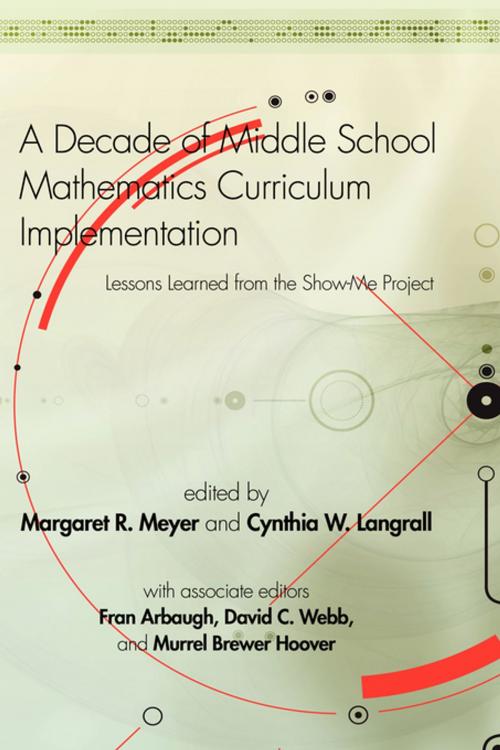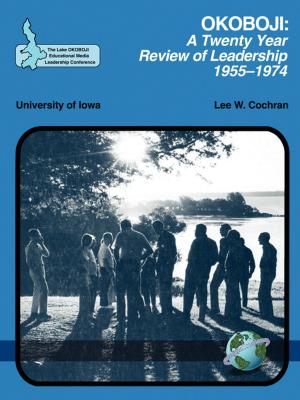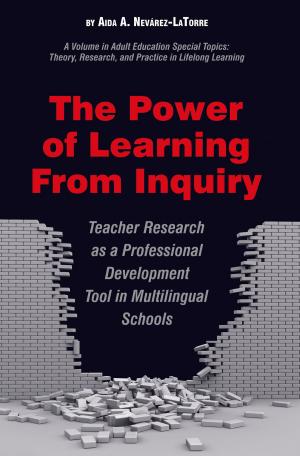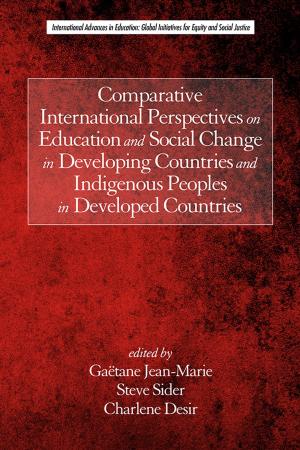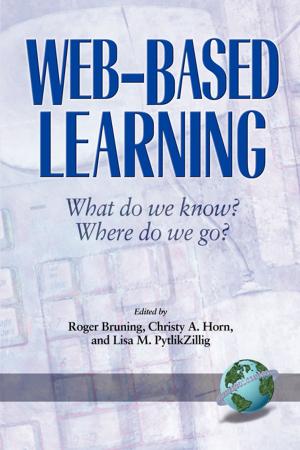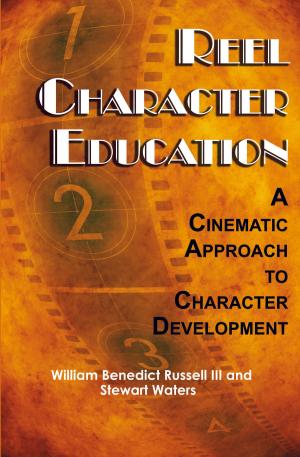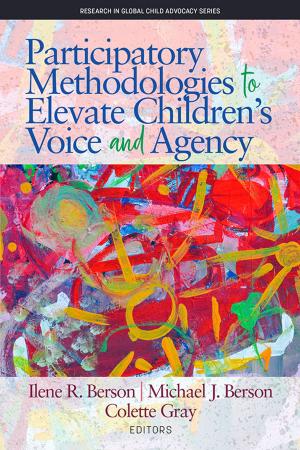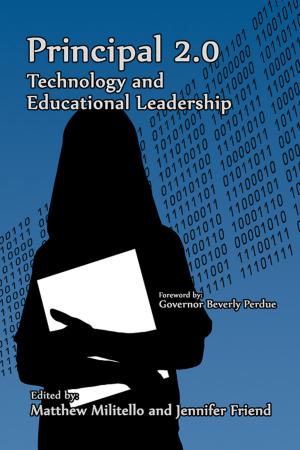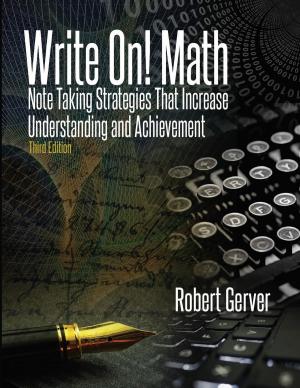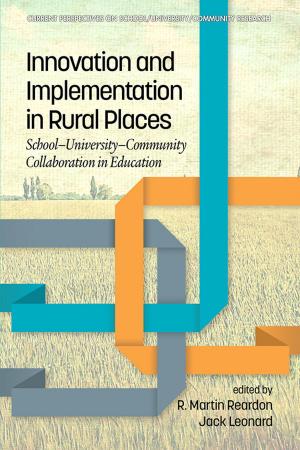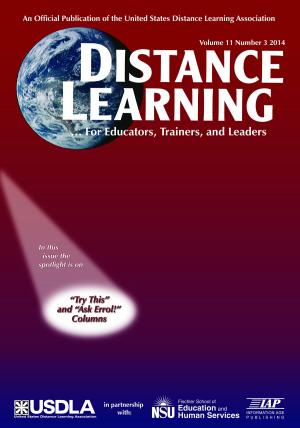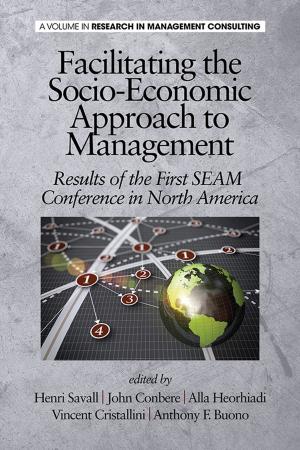A Decade of Middle School Mathematics Curriculum Implementation
Lessons Learned from the ShowMe Project
Nonfiction, Science & Nature, Mathematics, Study & Teaching, Reference & Language, Education & Teaching, Teaching, Teaching Methods| Author: | ISBN: | 9781607528104 | |
| Publisher: | Information Age Publishing | Publication: | December 1, 2008 |
| Imprint: | Information Age Publishing | Language: | English |
| Author: | |
| ISBN: | 9781607528104 |
| Publisher: | Information Age Publishing |
| Publication: | December 1, 2008 |
| Imprint: | Information Age Publishing |
| Language: | English |
Associate Editors Fran Arbaugh, University of MissouriColumbia, David C. Webb, University of Colorado at Boulder and Murrel Brewer Hoover, WVSTEM Center @ Marshall University The purpose of this book is to document the work of the ShowMe Project (19972007) and to highlight lessons learned about curriculum implementation. Although the ShowMe Project was charged with promoting the dissemination and implementation of four distinct comprehensive curriculum programs (Connected Mathematics, Mathematics in Context, MathScape, and MathThematics), most of the lessons learned from this work are not curriculum specific. Rather, they cut across the four programs and share commonalities with standardsbased curriculum reform at any level. We believe that documenting these lessons learned will be one of the legacies of the ShowMe Project. We anticipate that the comprehensive nature of this work will attract readers from multiple audiences that include state and district mathematics supervisors, middle grades mathematics teachers and administrators involved in curriculum reform, as well as mathematics teacher educators. Those about to embark on the review of curriculum materials will appreciate reading about the processes employed by other districts. Readers with interests in a particular curriculum program will be able to trace the curriculumspecific chapters to gain insights into how the design of the curricula relate to professional development, adoption and implementation issues, and teachers’ personal experience using the curriculum materials. Individuals who provide professional development at the middle grades level will find chapters that they can use for both general and focused discussions. Teachers at all stages of implementation will recognize their own experiences in reading and reflecting on the stories of teacher change. Mathematics educators will find ideas on how these curricula can be used in the preparation of preservice middle grades teachers.
Associate Editors Fran Arbaugh, University of MissouriColumbia, David C. Webb, University of Colorado at Boulder and Murrel Brewer Hoover, WVSTEM Center @ Marshall University The purpose of this book is to document the work of the ShowMe Project (19972007) and to highlight lessons learned about curriculum implementation. Although the ShowMe Project was charged with promoting the dissemination and implementation of four distinct comprehensive curriculum programs (Connected Mathematics, Mathematics in Context, MathScape, and MathThematics), most of the lessons learned from this work are not curriculum specific. Rather, they cut across the four programs and share commonalities with standardsbased curriculum reform at any level. We believe that documenting these lessons learned will be one of the legacies of the ShowMe Project. We anticipate that the comprehensive nature of this work will attract readers from multiple audiences that include state and district mathematics supervisors, middle grades mathematics teachers and administrators involved in curriculum reform, as well as mathematics teacher educators. Those about to embark on the review of curriculum materials will appreciate reading about the processes employed by other districts. Readers with interests in a particular curriculum program will be able to trace the curriculumspecific chapters to gain insights into how the design of the curricula relate to professional development, adoption and implementation issues, and teachers’ personal experience using the curriculum materials. Individuals who provide professional development at the middle grades level will find chapters that they can use for both general and focused discussions. Teachers at all stages of implementation will recognize their own experiences in reading and reflecting on the stories of teacher change. Mathematics educators will find ideas on how these curricula can be used in the preparation of preservice middle grades teachers.
